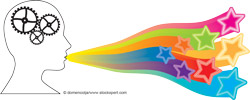Child psychology: Communication
Add to My Folder
Communication is central to individual children’s learning, effective teaching and well-functioning classrooms and schools

Being able to communicate and use language is central to children’s thinking, memory, reasoning, problem solving, and of course, their social interaction. It’s important, therefore, that typical and atypical language development is recognised as soon as possible. Teachers are well placed to do this because of their everyday working knowledge of normal child development and of the specific children they teach. Often, the children who are experiencing problems with acquiring literacy skills or emotional and social development are doing so because of speech and language difficulties. It is worth raising any concerns with the school’s special educational needs coordinator (SENCo), who may decide to involve the school’s educational psychologist (EP) or speech and language therapy services. The best way of helping SENCos access these services is to provide good records of your concerns, which could include samples of a particular child’s language in relation to different classroom activities.
Non-verbal skills
Already a member? Sign in below.
Published 27 October 2008
Reviews
You need to be signed in to place a review.